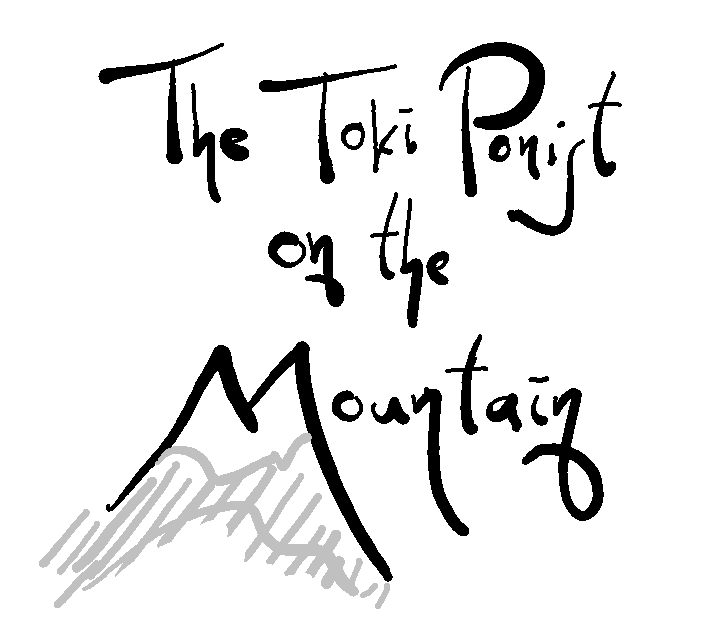ike lili li kama e pakala suli tawa jan lili.
For a child, any small problem can become a trauma. — Toki Ponist Pu
July 2021
These are the words as recovered from the awoken well:
jan Sipi li toki e ni: pona!
jan Palipan li toki e ni: jan li pakala tan seme?
jan Sipi li kama jo e pan tan poki.
ona li toki e ni:
sina ken awen e pan.
taso ni li kama pakala.
jan Sipi li moku e pan. ona li toki e ni:
Here follows a relaxed translation:
Palipan gives Tipi a basket of bread. Tipi thanks Palipan. Palipan then asks: “Why do we suffer?” Tipi takes a piece of bread and says: “This bread will always get moldy.” “Even if you protect it very well, it will eventually perish.” Palipan asks: “What can we do?” Tipi eats the bread. Bake new bread every day.
Associative musings:
Everyone is broken if you look with appropriate eyes. Some are more acutely aware of this than others and some hide it better. Some fractures are bigger than others but that’s just a matter of relative size and how well you zoom in. It is not outlandish to assume that the most persistent breakages occur at a young age, because the mental and physical development is such that your identity and well-being is fused with your surroundings and people around you and there is no strong agency yet.
Even in the most loving and protective household a minor incident, accident or raising of voice can be traumatic and everlasting. Left at its own accord, like in any free chaotic system, the eventual outcome can be small or huge and be highly unpredictable. Instead of putting to much effort into preventing all possible fractures at the start, it might be better to treat every day as a chance to deal with the things you can deal with.
Read a newer koan (He who has everything and he who has nothing can live in the present. The middle class lives to gain and fears to lose.)
Read an older koan (Once you start calling someone a genius, you have stopped understanding what they are saying.)
